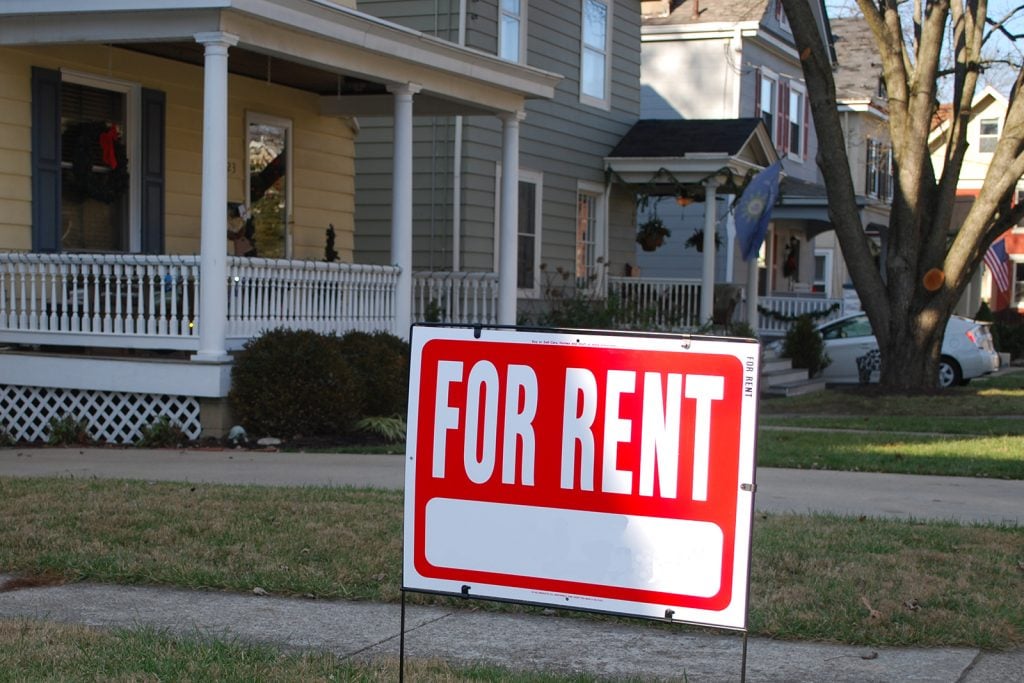Ask Brian is a weekly column by Real Estate Expert Brian Kline. If you have questions on real estate investing, DIY, home buying/selling, or other housing inquiries please email your questions to [email protected].
Question. Les from Tampa, FL writes: I’ve been a landlord before but out of the business for about five years. As I watch the stock market gyrate wildly, I’ve decide to get back into real estate. I’m thinking about going back to being a landlord but this time starting with discounted properties that need repairs before a tenant moves on. I’d like your thoughts on a few questions I have. 1. What property makes a good buy/fix/rent? 2. How do I know if a discounted property is a good buy? 3. Beyond a basic due diligence, what else should I do to evaluate a buy/fix/rent property?

Answer. Hello Les. From your questions, it sounds like you have a pretty good handle on what you are doing. Let’s answer your questions in the same order you asked them.
1. Generally, it’s wise to aim for the middle of the market or slightly below that. This is a big section of the market considering that homeownership has been declining since 2005 and has leveled off to about 64.4% in 2017 and 2018 (U.S. Census Bureau). Of course, that means more people are renting. It’s safe to assume the lower ownership rate is largely due to lack of affordability. Hence the reason why you probably want to look at the market slightly below the middle (houses people are more likely to be able to afford). Properties above this level usually are more expensive to repair and maintain. Many of the people in the upper range can afford to buy if they want to. They tend to choose renting to leave the headaches of ownership to landlords. That means they want what they are paying for, granite countertops, stainless steel appliances, and everything maintained in pristine order. On the other hand, if you invest in deeply discounted houses in high crime areas, you’ll again have high maintenance costs from vandalism, theft, and higher vacancy rates. (The exception can be areas being revitalized). The sweet spot is typically middle to lower class working neighborhoods where people have enough income to meet basic living expenses. Still, these can be the first hit when a recession starts and family/friends consolidate households. Les, your challenge is finding that sweet spot in a location where you want to invest.
2. Once you find the right neighborhood, the next step is finding a discounted house worth investing in. This where you need knowledge about repair costs. Before you do anything else, familiarize yourself with the “after repair value.” If you are working with a real estate agent, you want him or her to show you comps of what similar houses have sold for recently. I also think it’s a good idea to learn what similar houses are renting for. Doing an informal survey by knocking on doors in the neighborhood is a good way to learn about rents. If you’re in the right neighborhood, at least half of the houses should be rentals. Next, you need to closely estimate the cost of repairs. That plus the cost to purchase will give you a good idea of how much you’ll have invested before you can rent. Be sure to include other expenses like taxes, insurance, vacancy rates, and the time it will take before a paying tenant is in place. From this, you should be able to calculate a pretty good idea of what your return on investment (ROI) will be. Many investors develop their own spreadsheet to calculate ROI specific to the neighborhood and property being considered
3. Once you identify a property that you are seriously considering, you need to dig deep into the evaluation. Much of the information is already collected in your first two steps. What you should do is reassess and validate the rehab costs, the ARV based on the most recent comps, and your ROI one more time. This is also the time to carefully evaluate any and all potential risks (what might prevent it from renting for you think it should earn). Once you are sure that you have carefully and fully considered all the information, you should be comfortable making the decision whether to invest in the property.
Please comment with their thoughts, experiences, and other suggestions about a buy/fix/rent strategy. Our weekly Ask Brian column welcomes questions from readers of all experience levels with residential real estate. Please email your questions or inquiries to [email protected].